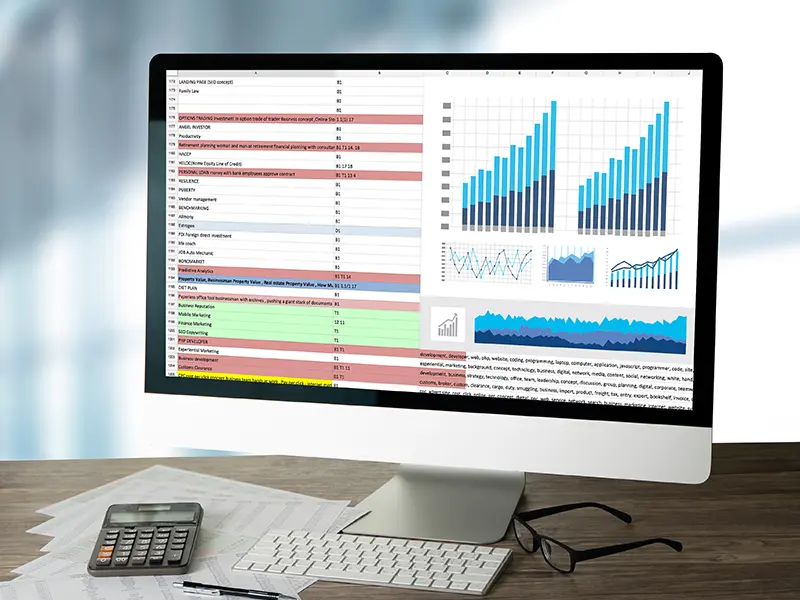Are you a small business owner looking to navigate the world of financial accounting with finesse? Whether numbers make your head spin or you’re a seasoned pro, mastering the essentials of financial accounting is crucial for the success and longevity of your venture. In this blog post, we’ll explore five key tips to help you streamline your finances, manage taxes effectively, and keep your business prosperous. Let’s dive in!
Understanding the Basics of Financial Accounting
Financial accounting is the language of business, providing a snapshot of your company’s financial health. It involves recording, summarizing, and analyzing financial transactions to generate reports that stakeholders can use for decision-making.
Key components of financial accounting include assets (what you own), liabilities (what you owe), equity (the difference between the two), income (revenue generated), and expenses (costs incurred). Understanding these elements will help you grasp your business’s financial position at any given time.
Accurate financial records are essential for tracking performance, complying with tax regulations, securing loans or investments, and evaluating growth opportunities. Mastering the basics of financial accounting lays a solid foundation for sustainable business practices.
Creating a Budget and Sticking to It
Creating a budget is the foundation of financial stability for any small business. It involves outlining your expected income and expenses, giving you a clear picture of your financial health. When setting up a budget, it’s crucial to be realistic about your revenue projections and expense estimates.
Sticking to the budget requires discipline and regular monitoring. Track your actual income and expenses regularly against what was planned in the budget. Adjustments need to be made to ensure you stay on track financially.
One effective strategy is allocating funds for different purposes, such as operations, marketing, or expansion. This helps prioritize spending and avoid overspending in one area at the expense of another. A well-defined budget lets you decide where your money should go each month.
Remember that creating a budget is not just a one-time task but an ongoing process that requires consistent attention and review. Dedication and adherence to your financial plan allow you to steer your small business toward success while ensuring long-term economic stability.
Proper Bookkeeping Practices
Proper bookkeeping practices are essential for maintaining financial stability in a small business. Keeping accurate records of all transactions is crucial for understanding the company’s economic health.
One effective practice is to separate personal and business finances by having dedicated bank accounts and credit cards for your company. This helps maintain clarity when tracking expenses and income.
Regularly reconciling accounts ensures no discrepancies between your records and actual bank statements. It also helps identify any errors or potential issues early on.
Maintaining organized documentation, such as invoices, receipts, and bills, makes it easier to track expenses and prepare for tax season efficiently.
Utilizing accounting software can streamline the bookkeeping process by automating tasks like invoicing, expense tracking, and generating financial reports.
By consistently implementing these proper bookkeeping practices, you can gain better insights into your business’s financial performance and make informed decisions to drive growth.
Managing Cash Flow and Expenses
Cash flow management is crucial for small businesses’ financial health. Tracking incoming and outgoing funds helps ensure enough liquidity to cover expenses. One effective way to manage cash flow is to create a detailed cash flow forecast outlining expected income and expenditures over a specific period.
Monitoring expenses closely can also help identify areas where costs can be reduced or optimized. This includes reviewing regular expenses like rent, utilities, and supplies to see if there are any opportunities for savings. Negotiating with vendors or seeking more cost-effective alternatives can significantly affect the overall financial picture.
Setting up payment schedules with suppliers that align with the company’s cash flow patterns can also help maintain stable finances. Additionally, having a buffer or emergency fund reserved for unexpected expenses can provide peace of mind during challenging times.
Regularly analyzing cash flow statements and comparing them against budgeted amounts allows businesses to monitor their financial performance and make informed decisions about future investments or cost-cutting measures. By managing cash flow effectively, small businesses can improve their overall financial stability and sustainability in the long run.
Utilizing Technology for Financial Management
Technology has revolutionized the way small businesses manage their finances. With the abundance of user-friendly accounting software and apps, keeping track of your finances has never been easier. These tools can help automate processes like invoicing, expense tracking, and payroll, saving you time and reducing the risk of errors.
Cloud-based solutions allow you to access your financial data from anywhere at any time, providing real-time insights into your business’s performance. This instant access to information enables better decision-making and planning for the future. Additionally, technology can assist in generating detailed reports that offer a clear overview of your company’s financial health.
By embracing technology for financial management, small businesses can streamline their operations and improve efficiency. Leveraging these digital tools simplifies tasks and enhances accuracy and transparency in your accounting processes. Stay ahead of the curve by integrating technology into your financial practices to drive growth and success for your business.
Working with a Professional Accountant
When it comes to financial accounting for small businesses, working with a professional accountant can be a game-changer. An accountant brings expertise and knowledge that can help navigate the complexities of tax laws and regulations. They can provide valuable insights on maximizing deductions, minimizing liabilities, and ensuring compliance.
A professional accountant can assist in setting up efficient accounting systems tailored to your business needs. They can offer guidance on strategic financial planning, budgeting, and forecasting to help your business thrive. Additionally, they play a crucial role in preparing accurate financial statements that reflect the true health of your business.
By partnering with an accountant, you can access personalized advice that aligns with your goals and challenges. Their objective perspective can uncover opportunities for growth and improvement while mitigating risks. Having a professional accountant on board is like having a trusted advisor by your side for all things finance-related.
Conclusion
Mastering financial accounting is essential for the success of small businesses. By understanding the basics, creating and sticking to a budget, practicing proper bookkeeping, managing cash flow efficiently, utilizing technology for financial management, and working with professional accountants when needed, small business owners can navigate the complexities of finances effectively. These tips help ensure compliance with tax regulations and pave the way for sustainable growth and profitability. Empower your business by implementing these financial accounting practices today!



